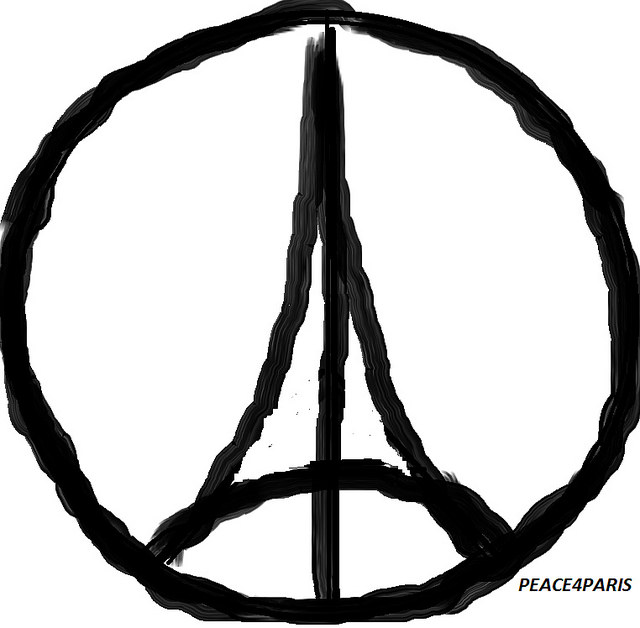Empathy and prejudice after attacks in Paris and Beirut
 https://www.flickr.com/photos/135117764@N05/
https://www.flickr.com/photos/135117764@N05/
On Friday November 13th 2015, a group of at least 7 attackers started shooting and bombing at six locations in Paris, killing at least 129 people, while injuring more than 300. One day before the Paris attacks, Beirut was attacked in a similar vein. Both attacks brutally killed and injured innocent people. ISIS – a terrorist movement who wants to build an Islamic State and convert people to Muslims – has claimed both attacks.
Despite the similarities, these two attacks invoked different reactions among the Western world populations. For example, most people didn’t even hear about the Beirut attacks after days, while the Paris attacks immediately became global news. Furthermore, people really emphasized with the victims in Paris – e.g. changing their profile picture on Facebook to the French flag, and holding a minute of silence – while the victims in Beirut received hardly any recognition or empathy. It appears that most people in the West emphasize more with the victims in Paris than in Beirut, but why is that?
Furthermore, feelings of fear are widespread since the attacks. The fear has affected not only Paris and Beirut, but the entire Western World. Nobody knows who will be ISIS’s next victim. This blog will try to show how these feelings of fear can evolve into prejudice against out-groups, and especially prejudice against Muslims. Put differently, due to which psychological mechanisms does this prejudice against out-groups increase? This blog will try to answer these questions by reviewing the relevant literature.
Psychological Distance and Empathy
First, why do we emphasize more with the victims in Paris than the victims in Beirut? A possible explanation for these different levels of empathy can be found in the Construal Level Theory, a psychological theory that describes how our physical distance, social distance, and hypothetical distance can influence whether our thinking is abstract or concrete (Trope & Liberman, 2010).
When you compare the Paris and Beirut attacks, you see that the Paris attacks are psychologically closer on these three distances. Indeed, the physical distance to Paris is less than the distance to Beirut (i.e., physical distance); we feel that the Parisians are more similar to us than people from Beirut (i.e., social distance); and due to the Paris attacks we believe it’s more probable that ISIS will now also attack other countries in the West, such as our own (i.e., hypothetical distance).
Research shows that the closer the event is spatially, socially, and hypothetically, the more concretely and vividly we will think about it (Trope & Liberman, 2010). This concrete level of thinking can result in being more emotionally aroused (Loewenstein & Small, 2007; Zillmann & Broius, 2000), and may lead to higher levels of empathy (Stephan, Liberman, & Trope, 2011; Woltin, Corneille, Yzerbyt, & Förster, 2011). Thus, due to our psychological closeness, our thoughts about the Paris attacks are more concrete than our thoughts about the Beirut attacks. As a consequence, we feel more compassion and empathy for the victims in Paris than those in Beirut.
Terror Management Theory and Prejudice
Second, how can our feelings of fear result in an increase in prejudice? We already saw that after 9/11, prejudice and hostility against Muslim communities increased across many European countries (Allen & Nielsen, 2002). Now, in light of the latest terrorist attacks, feelings of fear are widespread, and people are scared that prejudice against Muslims will rise again. But how exactly can our feelings of fear lead to prejudice against out-groups? One possible answer lies in what psychologists call the Terror Management Theory. According to this theory, people are predisposed towards survival, in other words, we have a desire to live. However, due to our capacity for self-reflection, we realize that our death is inevitable (Greenberg, Pyszczynski, & Solomon, 1986). This conflict results in terror, and can be resolved by reinforcing our cultural beliefs and values. Indeed, to avoid thoughts about death, we immerse ourselves in worldviews that offer some sort of immortality, such as believing in an afterlife or affirming our cultural values.
However, sometimes our own death becomes more salient, as it happened after the Paris attacks. In comparison with the attacks in Beirut, the attacks in Paris were widespread in the media. We already know that the media can prime what we think about, and we use this when judging others (Iyengar & Kinder, 1987). In line with this, other research shows that terrorism news reports can unconsciously activate fear of death and confront us with thoughts about our own mortality (Das, Bushman, Bezemer, Kerkhof, & Vermeulen, 2009).
According to the Terror Management Theory, this fear about our own death, in turn, increases our prejudiced attitudes towards out-group members. Furthermore, it is more likely that this terrorism news will increase prejudice when the news is either psychologically or physically close (Das et al., 2009). As we saw above, the Paris attacks are both psychologically and physically closer than those in Beirut, therefore making it more likely that our prejudiced attitudes will increase. Thus, according to the Terror Management Theory, the fear about our own death after watching terrorism news increases our prejudice against outgroups, such as Muslims.
Categorization, Over-Generalization, and Prejudice
Another possible explanation for the increase in prejudice could be that prejudice is a consequence of the categorization process (Allport, 1954; Tajfel, 1981). According to Leslie (forthcoming), it’s human nature to rapidly generalize dangerous or harmful information to the relevant category. Indeed, we do not want to wait and investigate how many great white sharks attack humans before we draw a general conclusion. Even a single attack can be enough to conclude that they can attack us. Therefore, when fearful events occur, we rapidly categorize them. Obviously, this has evolutionary benefits, since under-generalizing possible harmful information could be deadly (Leslie, forthcoming). Likewise, we do the same thing after a terrorist attack. Since these attacks concern dangerous and harmful information, people start to generalize quickly. Therefore, when Muslims are linked to terrorist acts, this automatically reinforces the ‘Muslims are terrorists’ stereotype. This ‘Muslims are terrorists’ stereotype obviously has negative connotations, which increases prejudice against Muslims if people act on those stereotypes.
Conclusion
To conclude, the Western world shows more empathy to the victims in Paris than in Beirut because they feel psychologically closer to them, resulting in more concrete and vivid thoughts about those victims which, in turn, increase the feelings of empathy. Furthermore, the attacks led to the widespread feelings of fear, which can result in higher levels of prejudice, either because our own mortality has become more salient, or because we start to over-generalize and perceive all Muslims as dangerous.
References
Allen, C., & Nielsen, J. S. (2002). Summary report on Islamophobia in the EU after 11 September 2001. Vienna: European Monitoring Centre on Racism and Xenophobia.
Allport, G. W. (1954). The nature of prejudice. Reading, MA: Addison-Wesley. Das, E., Bushman, B. J., Bezemer, M. D., Kerkhof, P., & Vermeulen, I. E. (2009). How terrorism news reports increase prejudice against outgroups: A terror management account. Journal of Experimental Social Psychology, 45, 453-459.
Greenberg, J., Pyszczynski, T., & Solomon, S. (1986). The causes and consequences of a need for self-esteem: A terror management theory. In R. F. Baumeister (Ed.), Public and private self (pp. 189-212). New York: Springer-Verlag.
Iyengar, S. & Kinder, D.R. (1987). News that matters. Chicago: The University of Chicago Press.
Leslie, S. J. (forthcoming). The original sin of cognition: Fear, prejudice, and generalization. The Journal of Philosophy.
Loewenstein, G., & Small, D. A. (2007). The scarecrow and the tin man: The vicissitudes of human sympathy and caring. Review of General Psychology, 11, 112-126.
Stephan, E., Liberman, N., & Trope, Y. (2011). The effects of time perspective and level of construal on social distance. Journal of Experimental Social Psychology, 47, 397-402.
Tajfel, H. (1981). Human groups and social categories: Studies in social psychology. Cambridge, England: Cambridge University Press.
Trope, Y., & Liberman, N. (2010). Construal-level theory of psychological distance. Psychological Review, 117, 440-463.
Woltin, K. A., Corneille, O., Yzerbyt, V. Y., & Förster, J. (2011). Narrowing down to open up for other people's concerns: Empathic concern can be enhanced by inducing detailed processing. Journal of Experimental Social Psychology, 47, 418-424.
Zillmann, D., & Brosius, H. B. (2000). Exemplification in communication: The influence of case reports on the perception of issues. Mahwah, NJ: Lawrence Erlbaum Associates.

